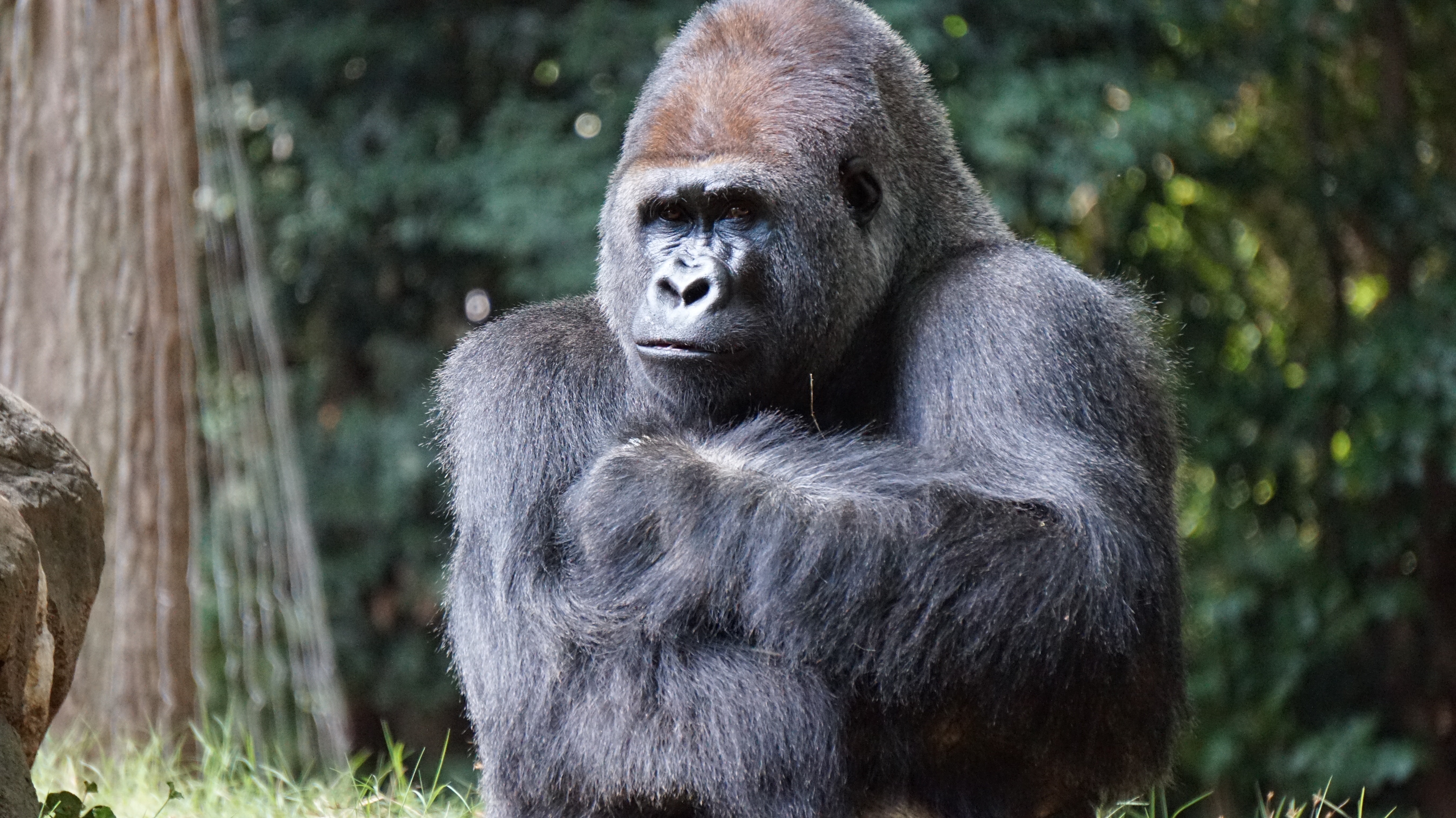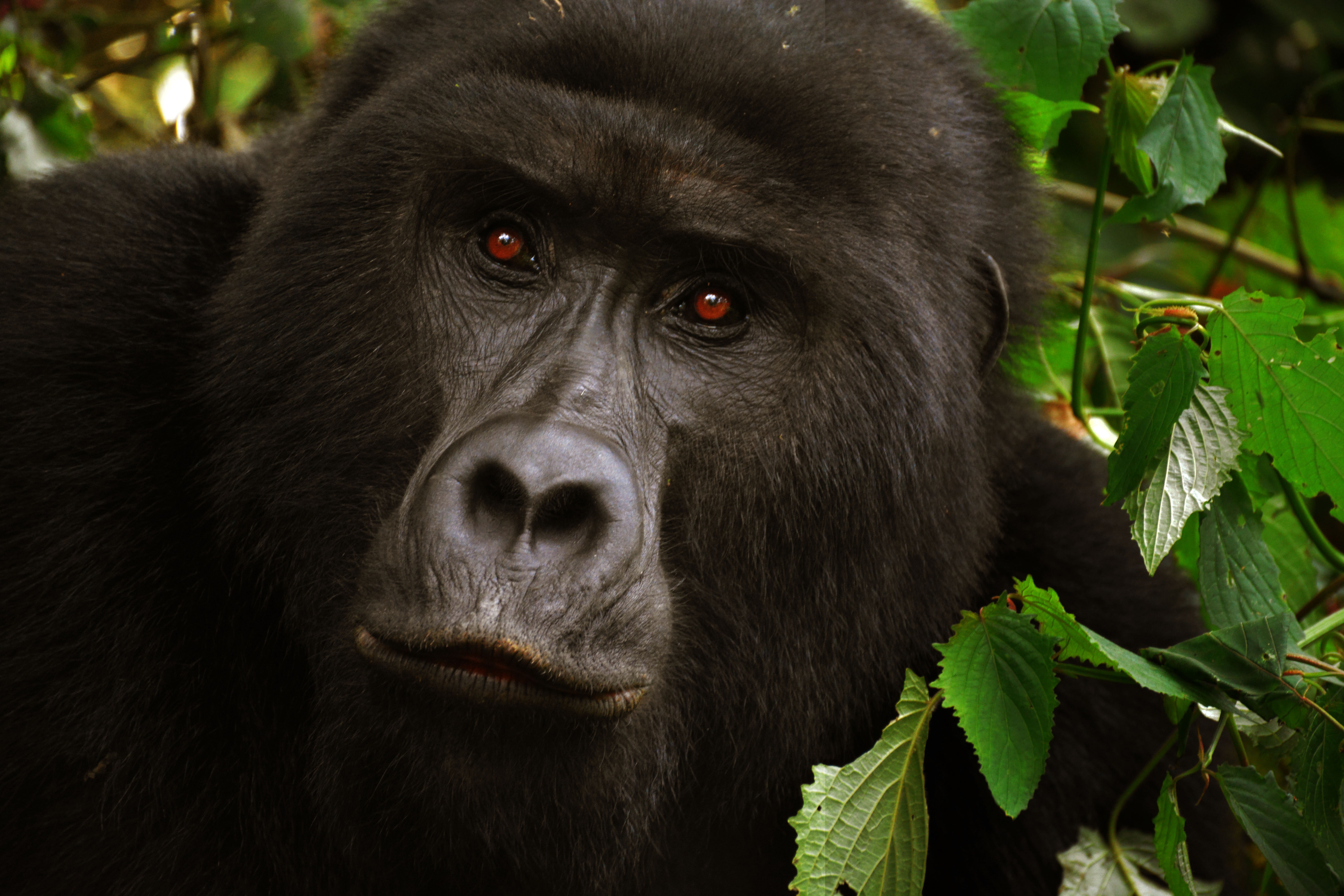Kampala: As the new coronavirus infects more people around the world, conservationists in Africa are warning of the risk to another species that may even be more vulnerable, the endangered mountain gorilla.
This week, the Democratic Republic of Congo's Virunga National Park, an ecologically rich area that is believed to be home to about a third of the world's remaining mountain gorillas, took the decision to shut down the park to visitors until June 1, citing the threat to mountain gorillas from visitors during the COVID-19 virus outbreak.
It's estimated only about 1,000 of the great apes still survive in protected areas in Uganda, Rwanda and Congo, whereas tourist attractions they are an important source of revenue for those governments.
Yet mountains gorillas are known to be prone to some of the respiratory illnesses that afflict humans.
According to the World Wide Fund for Nature (WWF), a common cold can kill a gorilla one reason tourists tracking gorillas normally are not permitted to get too close to the primates.
In a statement, the Virunga National Park said the temporary closure of mountain gorilla tourism in Virunga was a precautionary measure in line with the World Health Organization's recommendation to restrict movement and limit social contact.
"For Virunga in particular, it has been taken following advice from scientific experts indicating that primates, including mountain gorillas, are likely susceptible to complications arising from the COVID-19 virus. As such, we must remain steadfast in safeguarding our population of this endangered species," the statement said.
Read more: Divorce cases soar in China, courtesy quarantine!
Neighbouring Uganda and Rwanda have not announced similar shutdowns of gorilla tourism, although the volume of tourist traffic in those countries has dwindled.
Countries such as Japan, Spain, France and Italy, all affected by the outbreak, are the source of many of the tourists who pay hundreds of dollars each to track the gorillas.
Gladys Kalema-Zikusoka says additional measures are needed to protect the primates.

"Definitely they could die. It could wipe out the whole population. Because it is a viral disease and it can easily spread through a group," she says.
"The additional measures that are being added is disinfectant at all the different sites, encouraging tourists to wash their hands and the wildlife authority is also thinking of… they've approached us to consider the issue of tourists wearing masks. So, we are hoping that that would move ahead very quickly" she adds.
Bashir Hangi, a spokesman for the Uganda Wildlife Authority, says the decision on whether to shut down gorilla tourism is now academic as there is almost no business amid the outbreak.
Still, he says, the few tourists who come are screened for temperature and other symptoms and must obey rules, such as not standing within seven metres of a gorilla family.
Visitors from affected countries who have been placed under quarantine in Uganda need to produce what he called a certificate of isolation before they are permitted to track the gorillas.
Also read: Enjoy your Christmas by taking a tour of Lapland virtually
Kalema-Zikusoka is the co-author of a recent study published in the journal Frontiers in Public Health, along with researchers from the US-based Center for Disease Control and Ohio University.
The report highlighted the risks of disease transmission between humans and gorillas.
Researchers said that despite Ugandan government rules requiring humans to maintain a distance of more than seven metres from gorillas at all times, not all tour groups respect the rules.
Uganda has two national parks associated with gorillas in a forested mountain area near the border with Rwanda.
At least one family of habituated gorillas those apparently comfortable in the presence of humans routinely move across the border.
The region's mountain gorilla population dropped sharply in the past century because of poaching, illness and human encroachment.
Mountain gorillas have been listed as critically endangered or endangered since 1996, although their numbers are now said to be growing.
Uganda announced late last year that its population of mountain gorillas had grown from 400 in 2011 to 459, following a 2018 census inspired in part by what one official called a 'huge baby boom'. over the years.
Also read: Rio de Janeiro lights up world's tallest floating Christmas tree
But there have been painful losses.
In the past few years, some of Uganda's gorillas died of natural causes, with some falling from trees and others killed in battles between males fighting for territory or dominance.

A lightning strike killed four mountain gorillas, including three adult females, in Uganda in February, an event that was a source of sadness for conservationists.
Revenue collected from gorilla tourism is key in protecting the primates, as authorities in the three countries can then use some of the money to help local communities or invest in anti-poaching activities.
A gorilla tracking permit costs a tourist up to USD 600 in Uganda, and thousands pay for the opportunity to see the primates in their natural habitat each year. A similar permit costs upward of USD 1,000 in Rwanda.
Some worry the expected loss of revenue as tourist traffic grinds to a halt could also deepen challenges in park management.
DRC's Virunga, established in 1925 as Africa's first national park and now a UNESCO-designated World Heritage Site, has long been vulnerable to poachers in a volatile part of eastern DRC.
Also read: Watch magical Christmas light show at the Royal Botanic Gardens Kew



